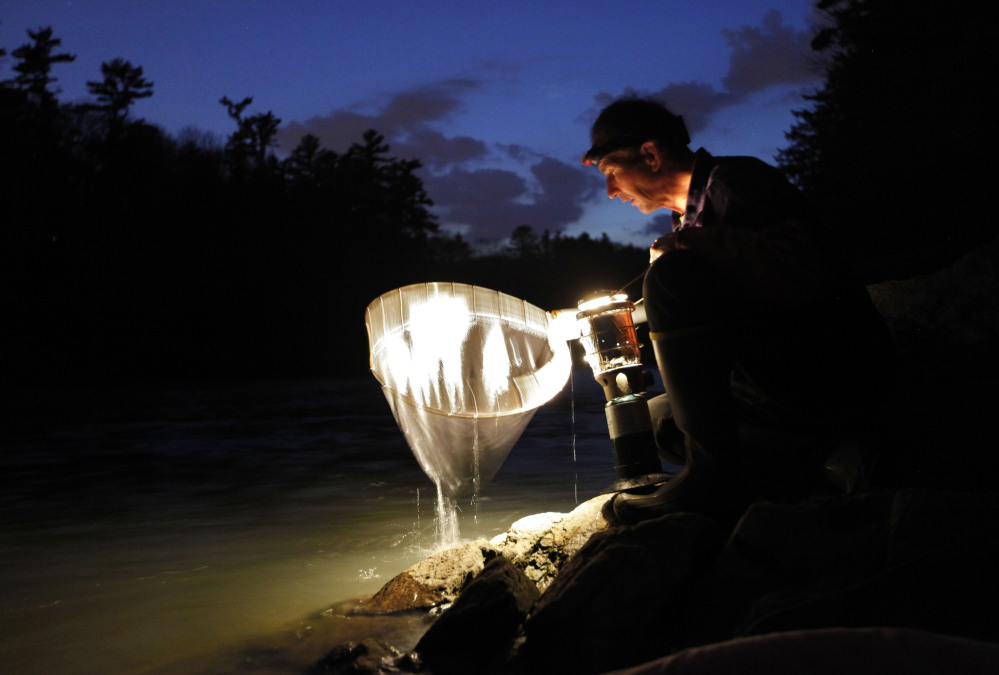The Maine Department of Marine Resources is moving forward with plans to slash the lucrative glass eel catch, with one more public hearing before rules are drafted to cut the fishery by up to 40 percent.
Industry officials supported quotas based on historical catch during the first public hearing hosted by state regulators this week in Augusta. Another hearing will be held Jan. 2 in Brewer.
Fishermen are frustrated by the cuts, which will be in place when the season opens in March.
“We’re being led down the road by bad science. It’s a data-poor species, so the scientists would rather err on the side of caution. That’s because they get paid and we don’t. They get a check every week. We only get paid if we catch something,” said Jeffrey Pierce, executive director of the Maine Elver Fishermen’s Association.
Elvers, as the baby eels are known, have come under scrutiny since prices ballooned to $2,000 and more per pound in recent years. They’re caught in Maine rivers and exported to Asia.
The Atlantic States Marine Fisheries Commission granted Maine’s elver industry a reprieve when it delayed taking action on new management rules — including the possibility of shutting down the fishery altogether — in exchange for a promise from Maine regulators to reduce the catch by 25 percent to 45 percent.
About 150 people attended the first hearing on the cuts on Wednesday. Some supported a derby-style limit in which fishermen could go after elvers until reaching a pre-determined limit. But most expressed support for setting quotas based on fishing history, said Jeff Nichols of the Maine Department of Marine Resources.
There are currently a total of 705 licensed elver harvesters in Maine. That includes more than 250 tribal licenses, including 200 granted to the Passamaquoddy tribe, Nichols said.
The fishery has been around for years, but the increase in value led to a gold rush mentality.
The value of elvers last year — $38.7 million — helped to push the value of Maine’s seafood industry past the half-a-billion mark for the first time. Elvers are second only to lobster in value.
Fishermen catch the tiny eels in nets as they swim up coastal rivers and dealers export the translucent creatures to Asia, where they are used as seed stock in aquaculture facilities.
Because they’re so valuable, fishermen fear that a black market could emerge if the fishery is cut too deeply or if the season is scrapped altogether. Fishermen fear additional cuts in 2015, Pierce said.
There will be one final public hearing in Brewer before the Department of Marine Resources begins crafting rules, which must be in place when the season opens on March 22, Nichols said.
Send questions/comments to the editors.



Success. Please wait for the page to reload. If the page does not reload within 5 seconds, please refresh the page.
Enter your email and password to access comments.
Hi, to comment on stories you must . This profile is in addition to your subscription and website login.
Already have a commenting profile? .
Invalid username/password.
Please check your email to confirm and complete your registration.
Only subscribers are eligible to post comments. Please subscribe or login first for digital access. Here’s why.
Use the form below to reset your password. When you've submitted your account email, we will send an email with a reset code.